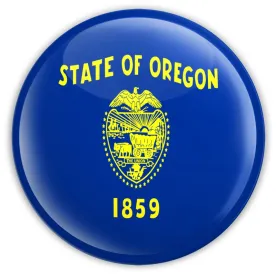On March 1, 2023, the House Revenue Committee will hold an informational hearing on three taxpayer-friendly bills:
- H.B. 2546, which would eliminate Oregon’s throwback rule for sales factor purposes;
- H.B. 2575, which would provide associational standing in the Oregon Tax Court; and
- H.B. 2576, which would provide jurisdiction to the Oregon Tax Court over local income tax matters.
Republican Rep. E. Werner Reschke of the 55th District is the sponsor of all three bills, which are supported by Oregon’s business lobby and appear to have the support of others on the House Revenue Committee. Public hearings were held on these bills earlier in session, and bills typically do not receive an informational hearing unless they are being considered seriously.
If passed, H.B. 2546, the sales factor throwback elimination bill, would provide relief for in-state businesses whose out-of-state sales of tangible personal property are required to be counted as Oregon sales where the taxpayer is not subject to tax in the destination state based on either a federal protection or lack of nexus. Considering that Oregon was an early adopter of single sales factor apportionment and later shifted from cost of performance to market-based sourcing in 2018, the state has been moving to a destination, verses origin, approach for sale factor purposes. The elimination of throwback would align the state’s treatment of the impacted out-of-state sales of tangible personal property with the state’s destination approach for all other types of out-of-state sales.
The passage of H.B. 2575 would provide trade associations and other organizations with standing to seek declaratory rulings from the Oregon Tax Court. Allowing standing to an organization whose members are impacted by a specific legal question would provide greater efficiencies to resolve certain constitutional or statutory questions without a specific taxpayer having to be subject to an audit or assessment by the state.
Finally, H.B. 2576 would allow the Oregon Tax Court, a court specialized in Oregon tax matters, to oversee substantive local income tax controversies. Both H.B. 2575 and H.B. 2576 would provide taxpayers with an avenue to have the Oregon Tax Court decide matters currently outside of its jurisdiction.


 />i
/>i
